Ikebana, the Japanese art of flower arrangement, is more than just placing flowers in a vase—it’s a mindful, meditative practice rooted in balance, harmony, and simplicity. This collection of public domain vintage Ikebana prints, dating from the 17th to the 19th century, showcases the beauty of this traditional art form.
They’re free to download and perfect for anyone who loves Japanese culture, floral design, or historical illustrations.
What is Ikebana?
Ikebana (生け花), meaning “living flowers,” is a disciplined floral art emphasizing simplicity, space, and natural flow. Unlike Western arrangements, which often focus on fullness and colour, Ikebana embraces asymmetry, minimalism, and the beauty of negative space. Each stem, branch, and bloom is placed with intention, creating a balanced composition that reflects nature’s elegance.
This practice isn’t just about aesthetics—it’s a form of meditation and mindfulness. Many people find peace in the slow, deliberate process of arranging flowers, appreciating their beauty in the moment.
A Brief History of Ikebana
Ikebana has its roots in Buddhist flower offerings made in temples as early as the 6th century. Over time, it evolved into a refined art form, with different schools and styles emerging:
- Ikenobō – The oldest school, emphasizing harmony and structured compositions.
- Ohara – Focuses on more naturalistic, landscape-inspired arrangements.
- Sōgetsu – A modern, creative approach that allows for contemporary materials.
Ikebana has been practised by Buddhist monks, samurai, and aristocrats throughout history. Later, it became popular among the general public. Today, it’s a global art form that blends tradition with modern design.
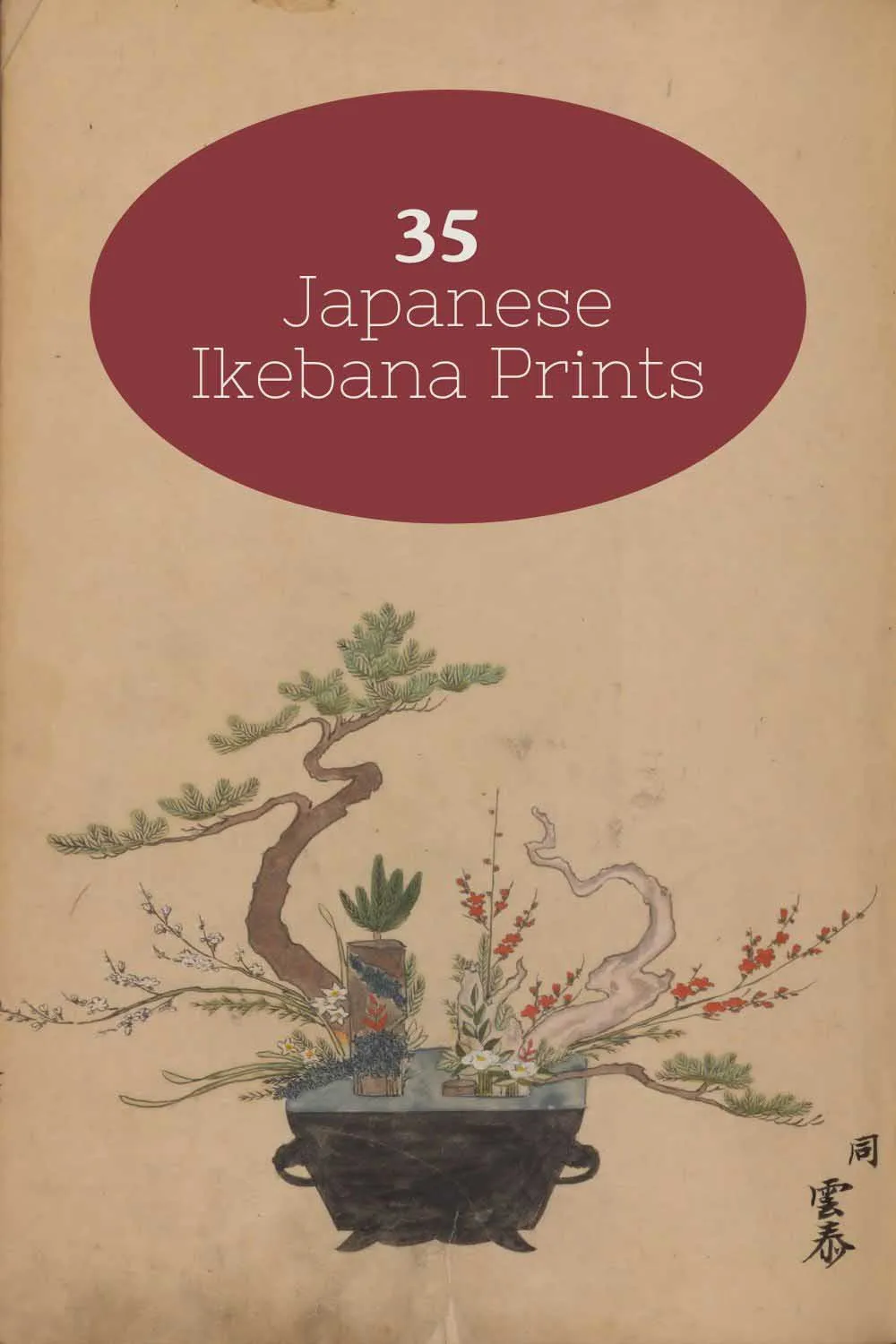
The Meaning Behind Ikebana Arrangements
Each Ikebana piece follows a triangular composition that represents:
- Heaven (Ten) – The tallest element, symbolizing the spiritual world.
- Humanity (Jin) – The middle element connecting heaven and earth.
- Earth (Chi) – The shortest element, grounding the arrangement.
Seasonality also plays a key role. Spring might feature cherry blossoms, while autumn arrangements highlight chrysanthemums and maple leaves. Even bare branches in winter tell a story of resilience and beauty in imperfection—a reflection of the Japanese philosophy of wabi-sabi.
How To Download the Ikebana Prints
Click on the title above the vintage Ikebana print you want. A higher-resolution image will open in a new tab. You can then print or save this image.
Prints From Shinsen Heika Zui
Shinsen Heika Zui (“New Selection of Vase Flower Arrangements”) is a beautifully illustrated manual on Ikebana by Yamanaka Chūzaemon from the late 17th century. It features hand-coloured illustrations and detailed instructions reflecting the aesthetics and techniques of the traditional Ikenobō school. Yamanaka’s work was crucial in documenting and preserving Ikebana practices, bridging traditional methods and artistic innovation.
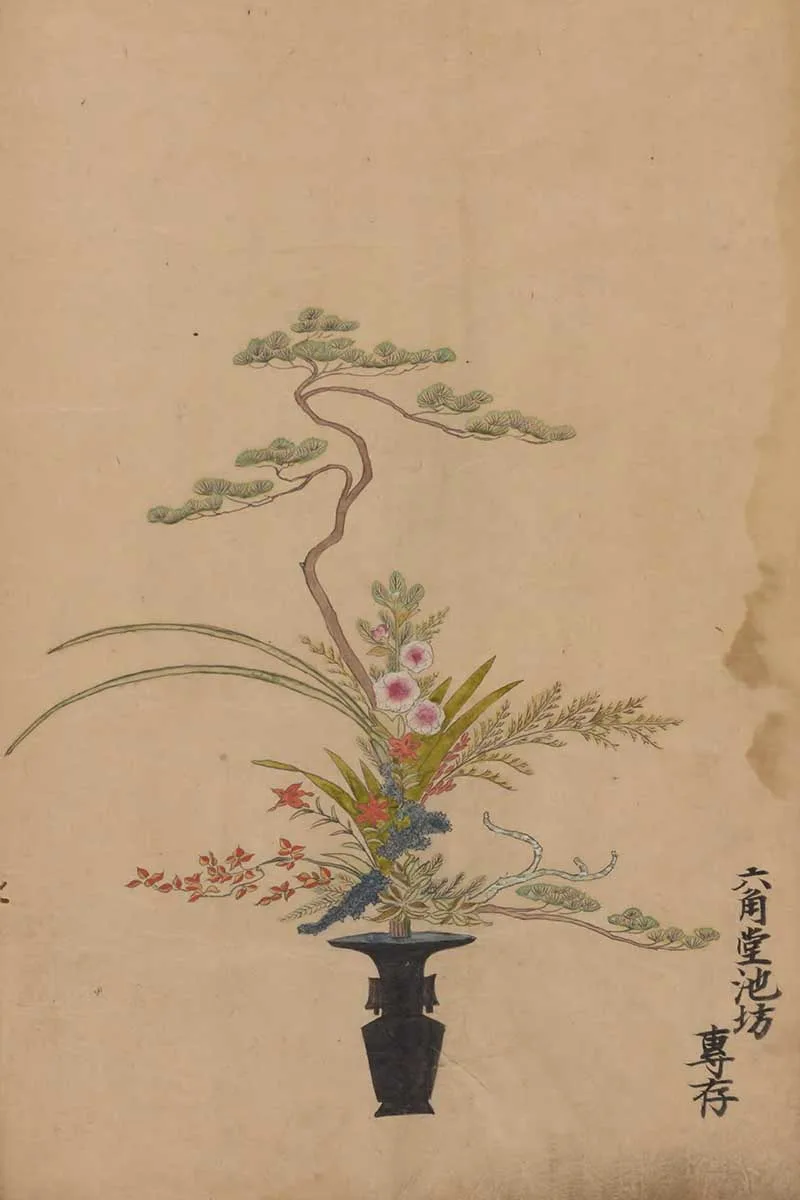
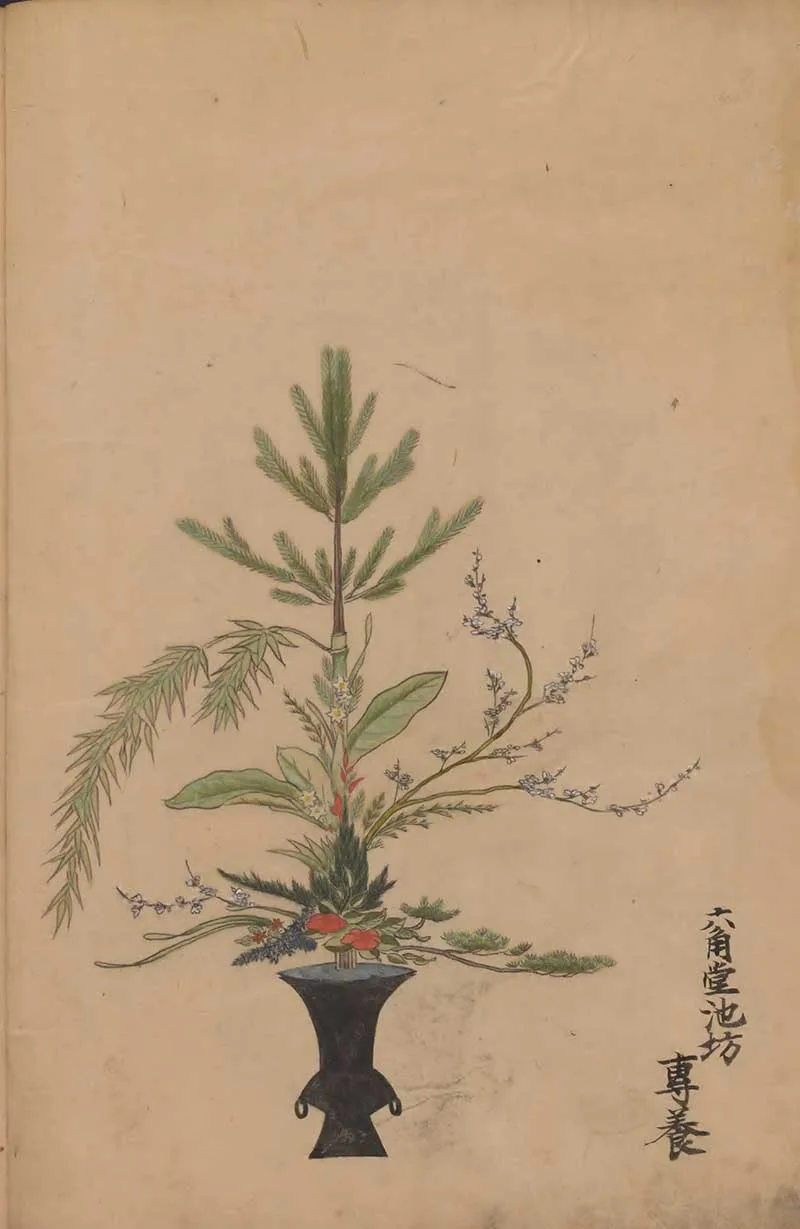
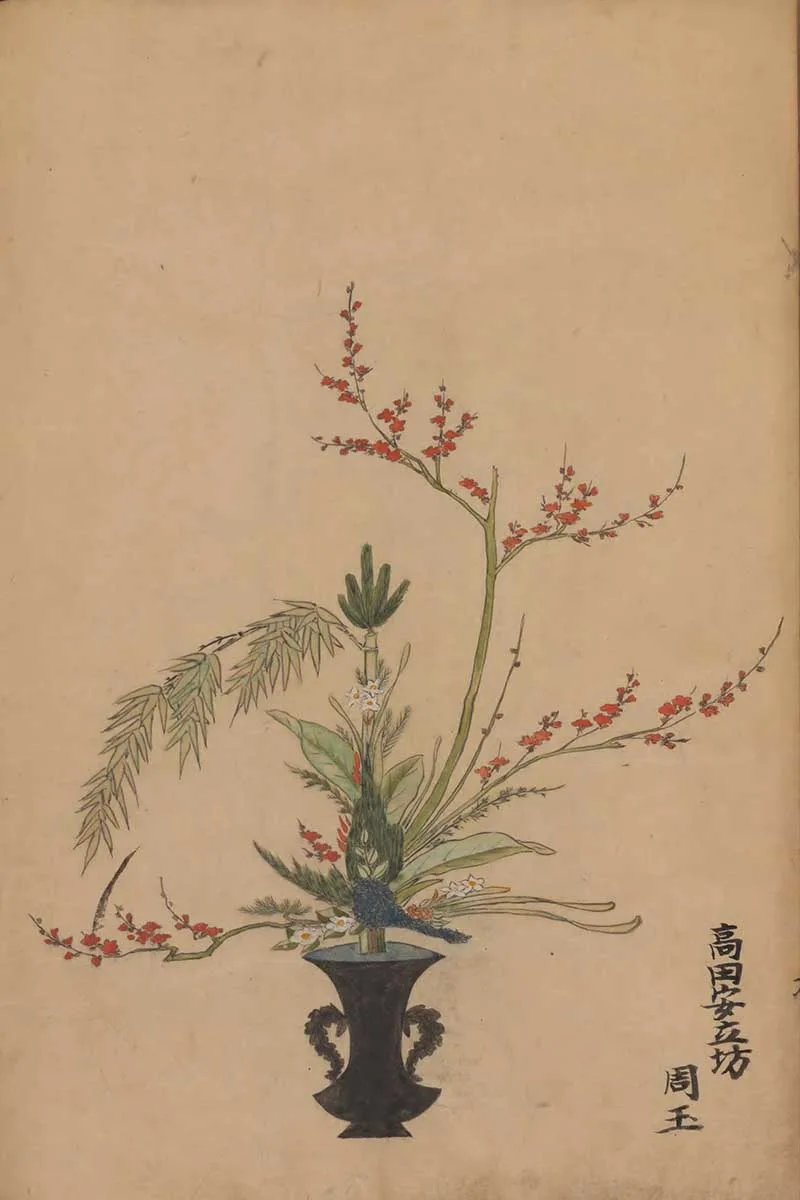
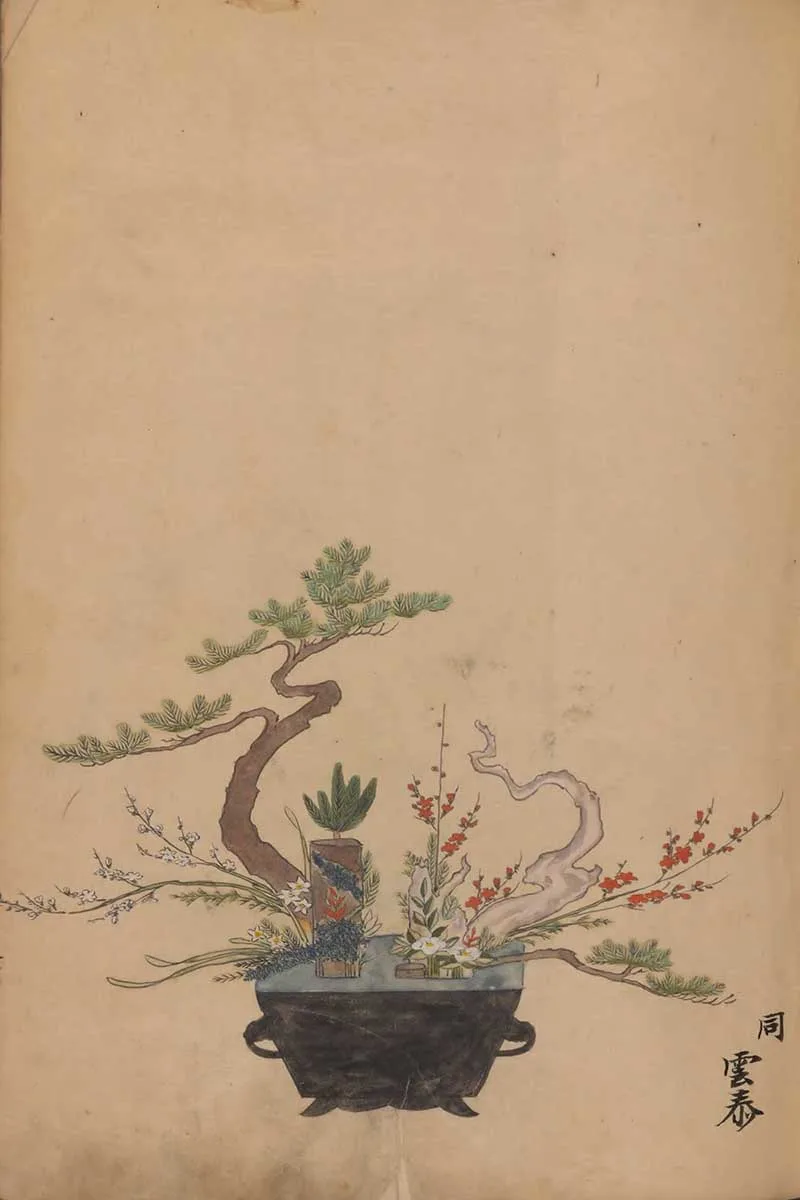
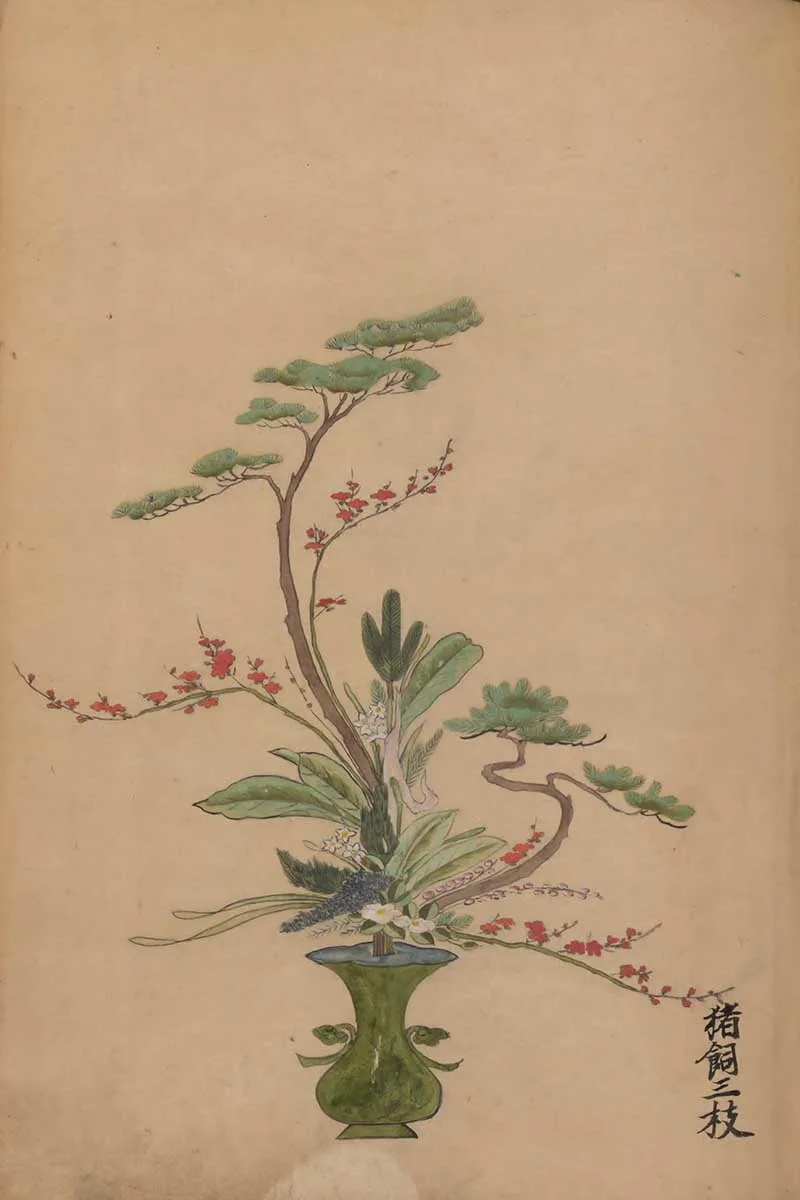
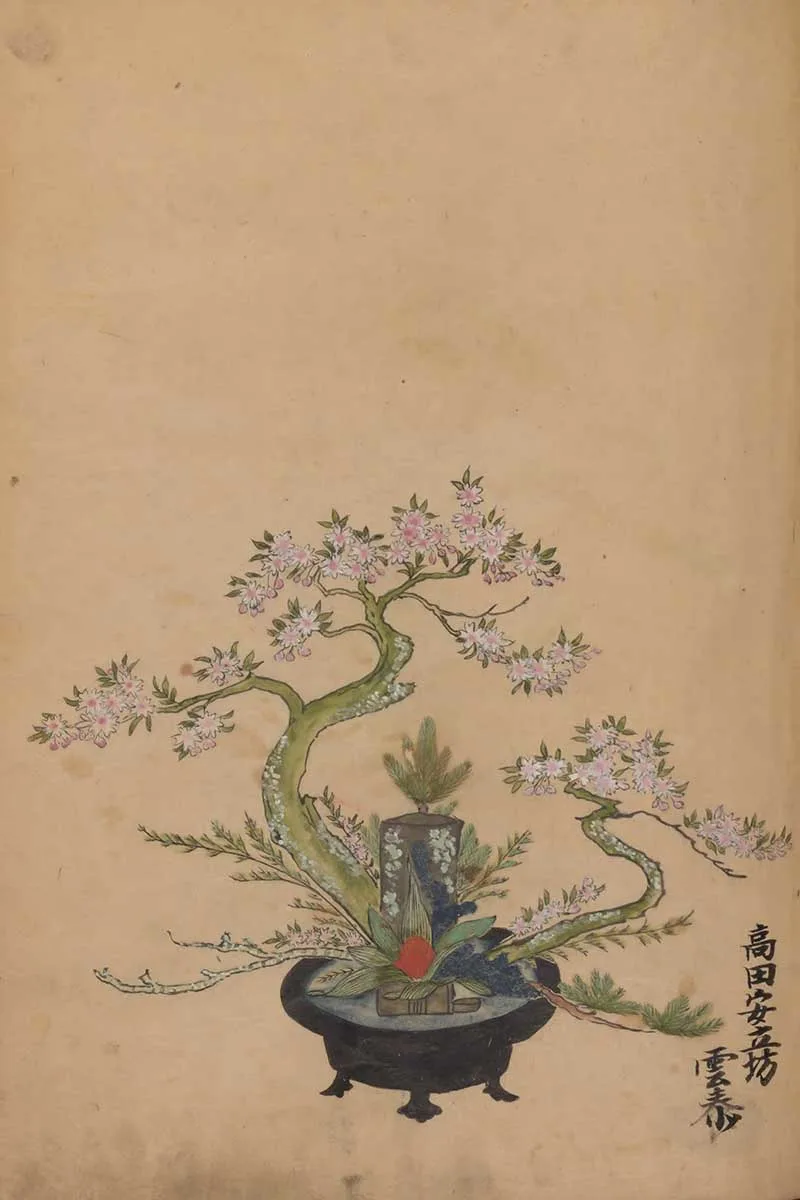
Prints From Shinkoku Heika Yōdōshū
Shinkoku Heika Yōdōshū is a historic Ikebana guide by Ikenobō Senjō (1769–1832), a master of the Ikenobō school, the oldest Ikebana tradition. Published as part of the Kadō Koten Sōsho series, it features 41 Rikka (standing flower) arrangements, each meticulously illustrated. Rikka, a formal Ikebana style, symbolizes elements of nature like mountains and rivers.
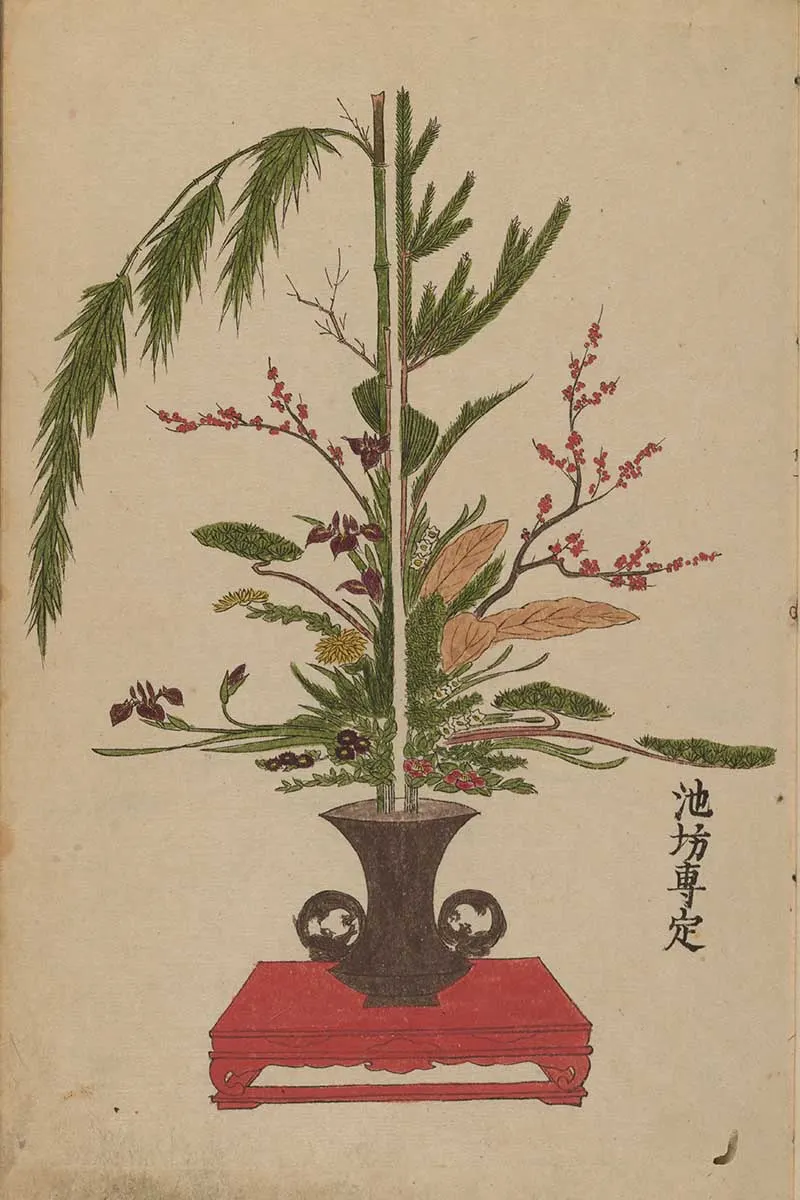
The flowers below look like irises. Check out this fantastic collection of vintage Japanese iris paintings.
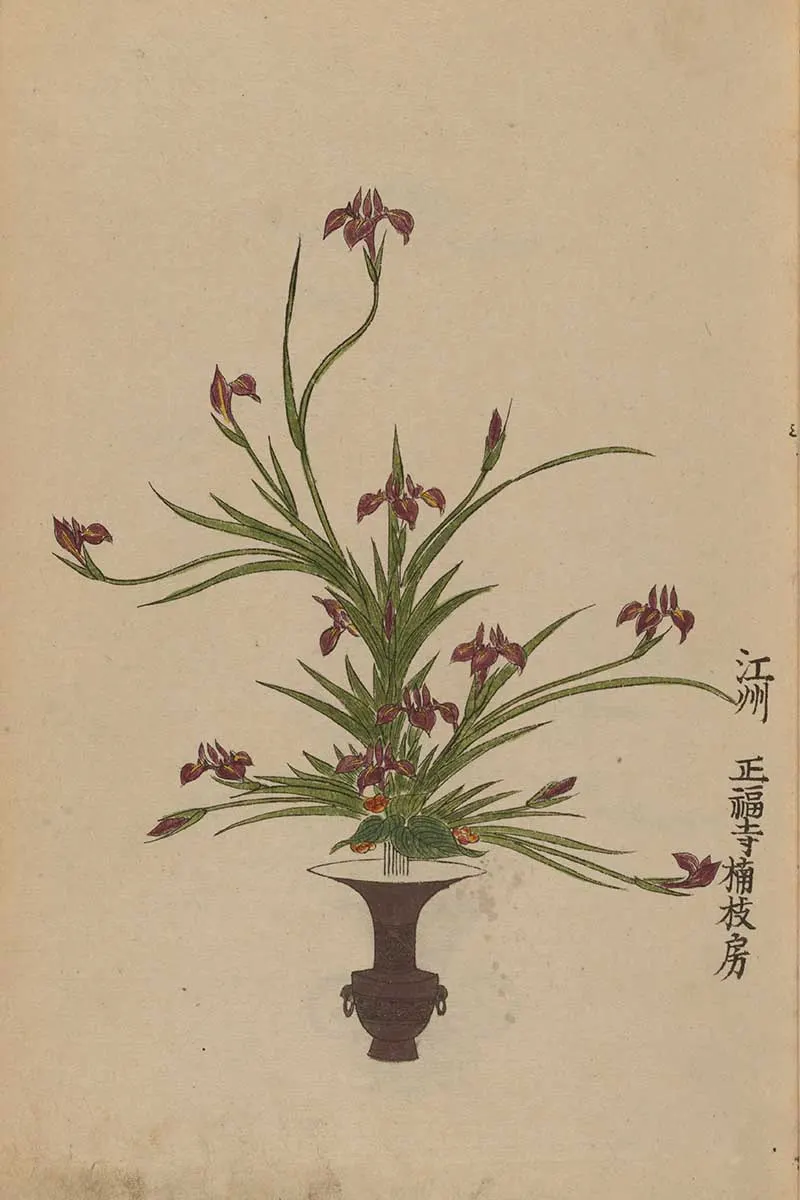
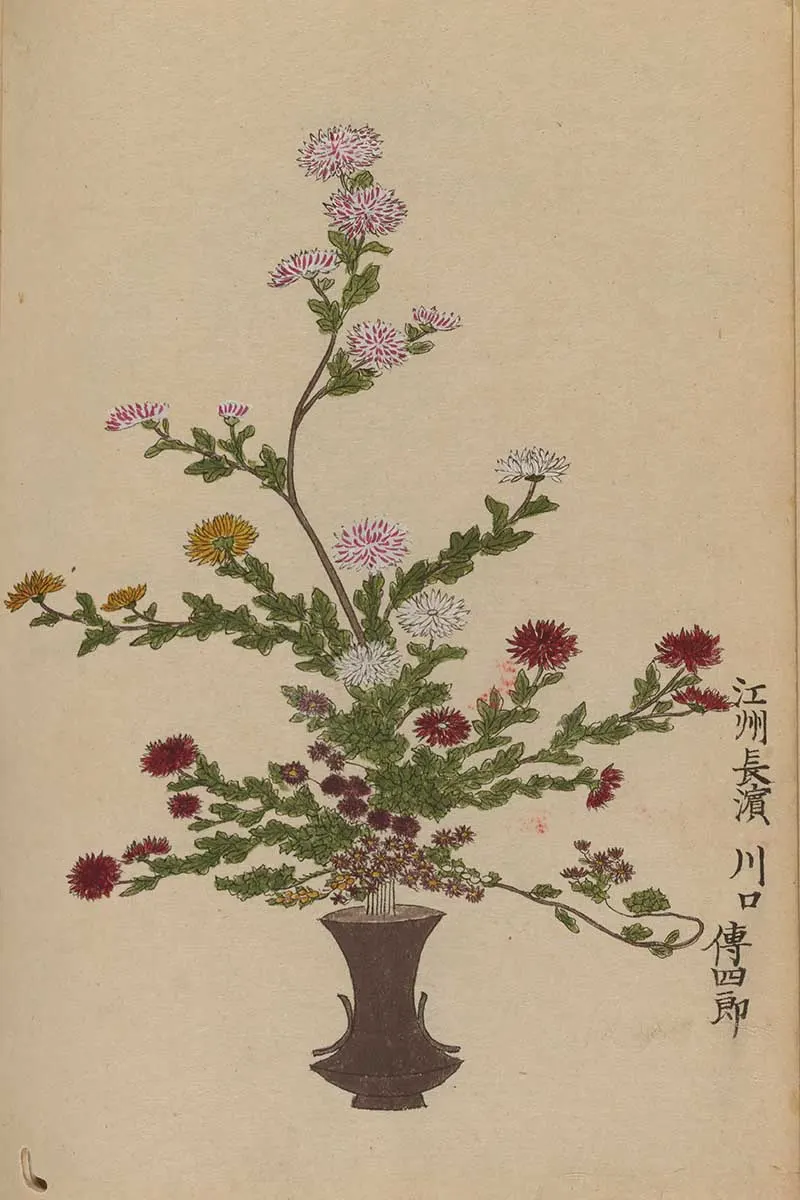
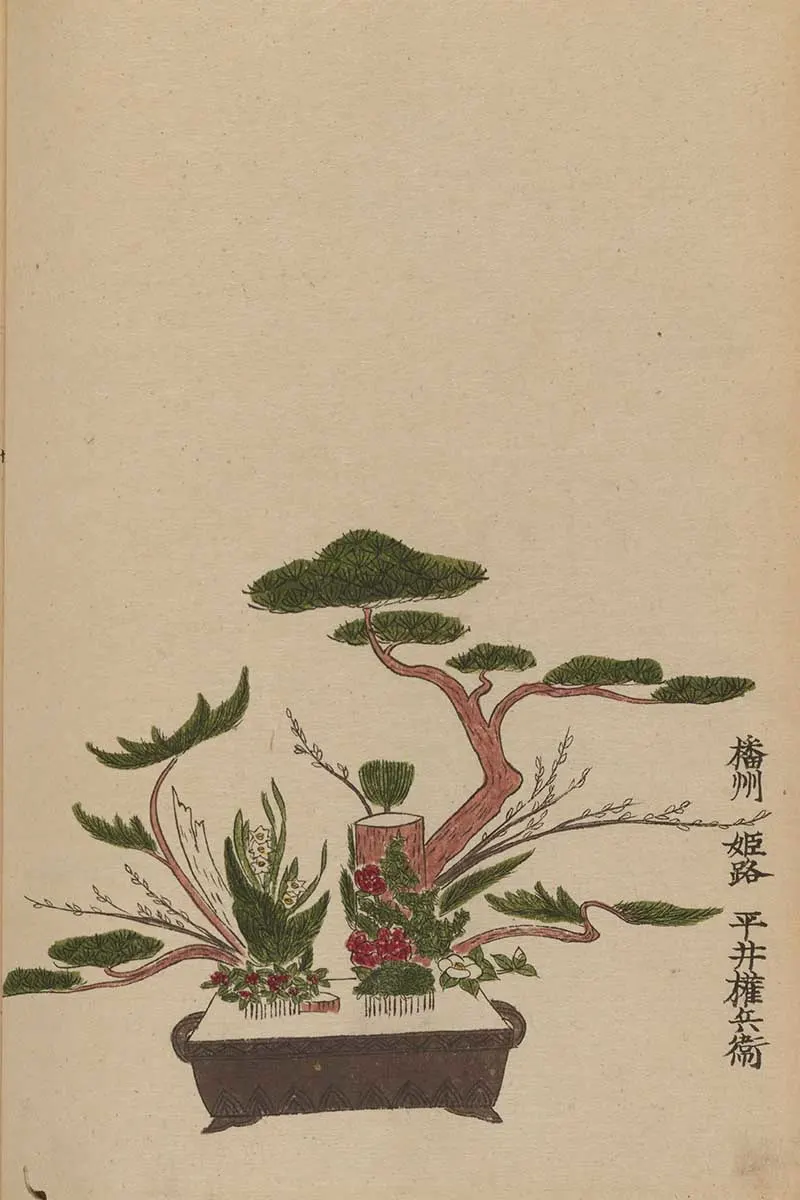
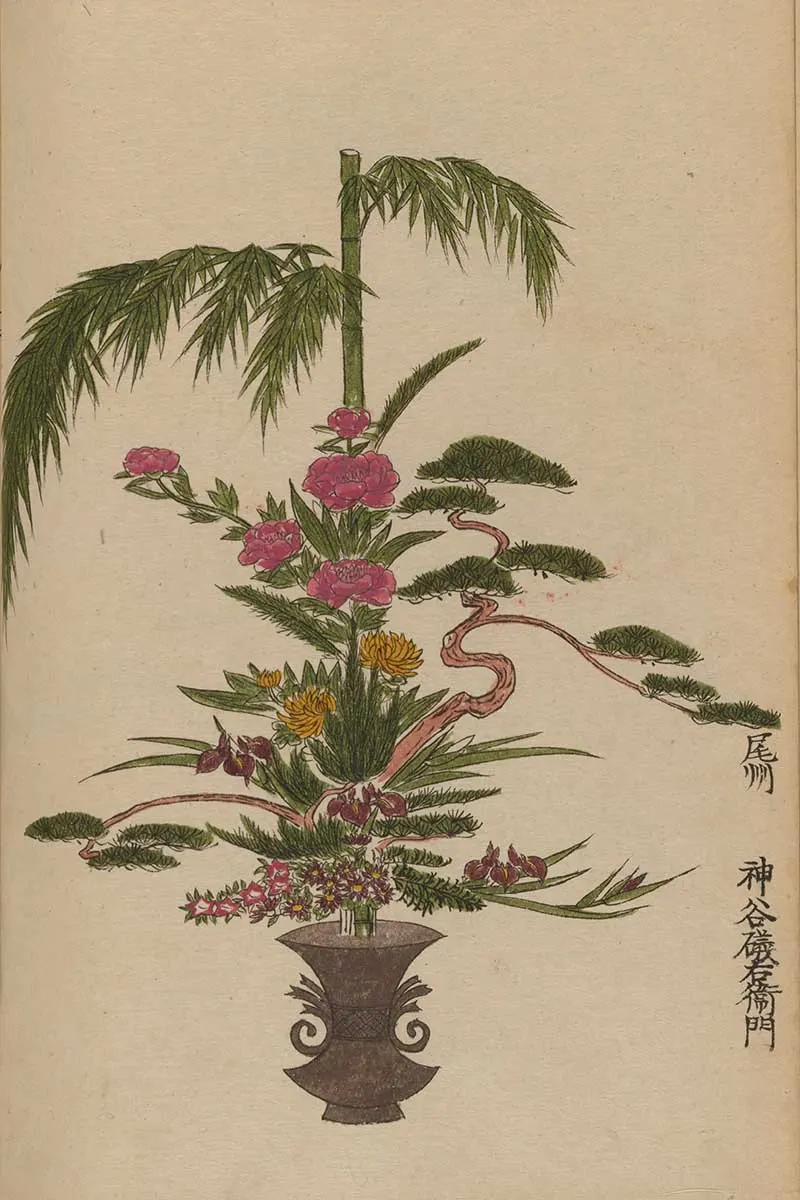
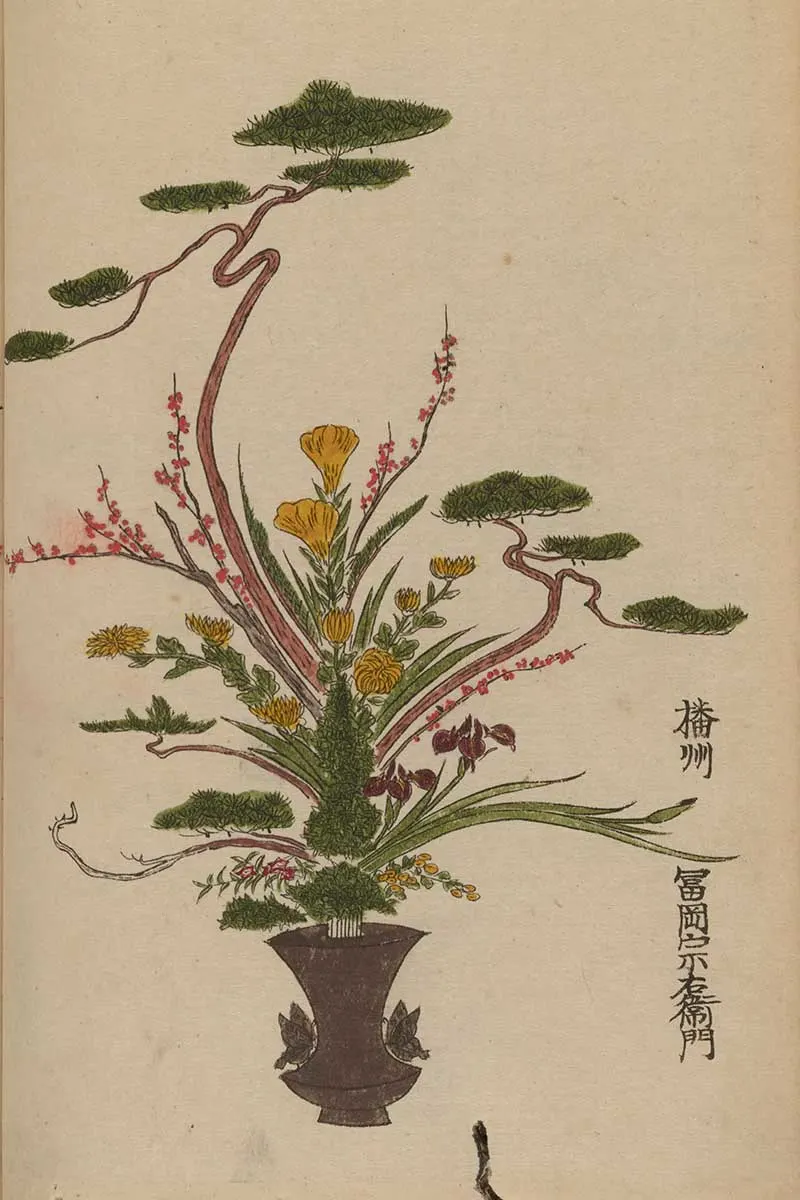
Rokkakudō Ikenobō Narabini Montei Rikka Suna no Mono Zu
“Rokkakudō Ikenobō Narabini Montei Rikka Suna no Mono Zu” is a seminal work in the art of Ikebana, authored by Ikai Sanzaemon and published in 1673. This text offers a comprehensive exploration of the Rikka style, a traditional form of Japanese flower arrangement characterized by its upright structure and symbolic representation of natural landscapes. The inclusion of “Rokkakudō” in the title references the Rokkakudō Temple in Kyoto, the birthplace of the Ikenobō school, underscoring the work’s deep roots in the origins of Ikebana.
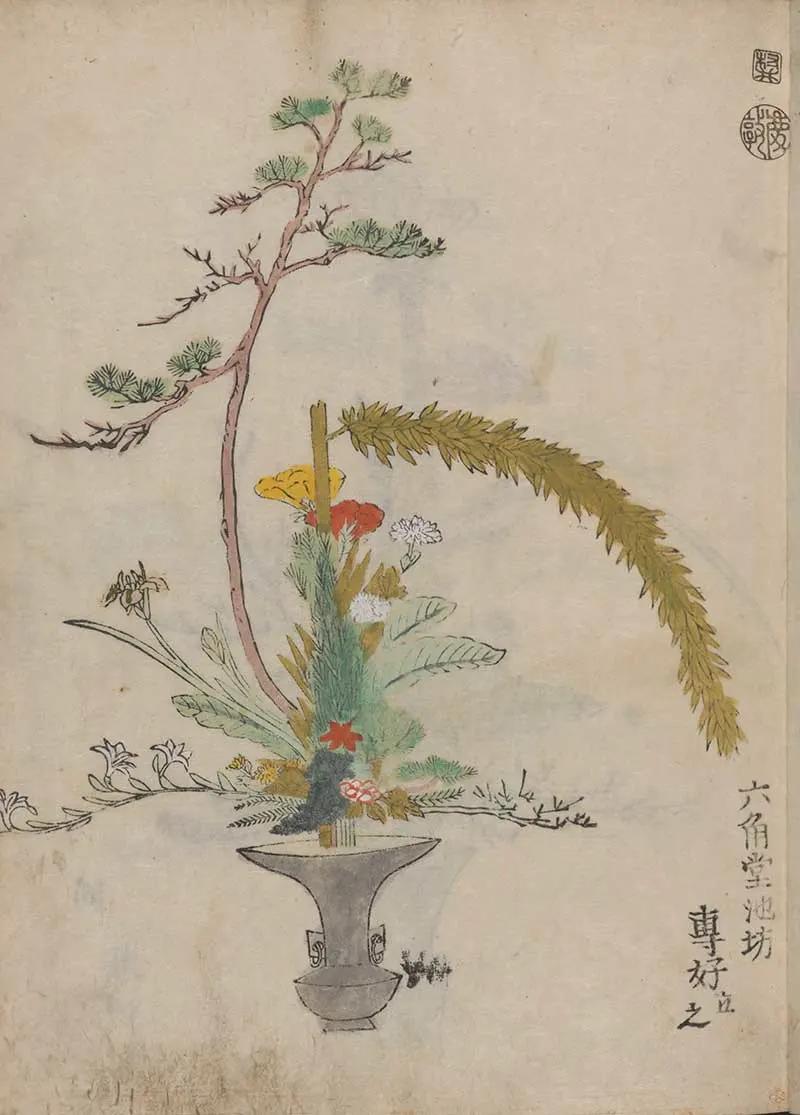
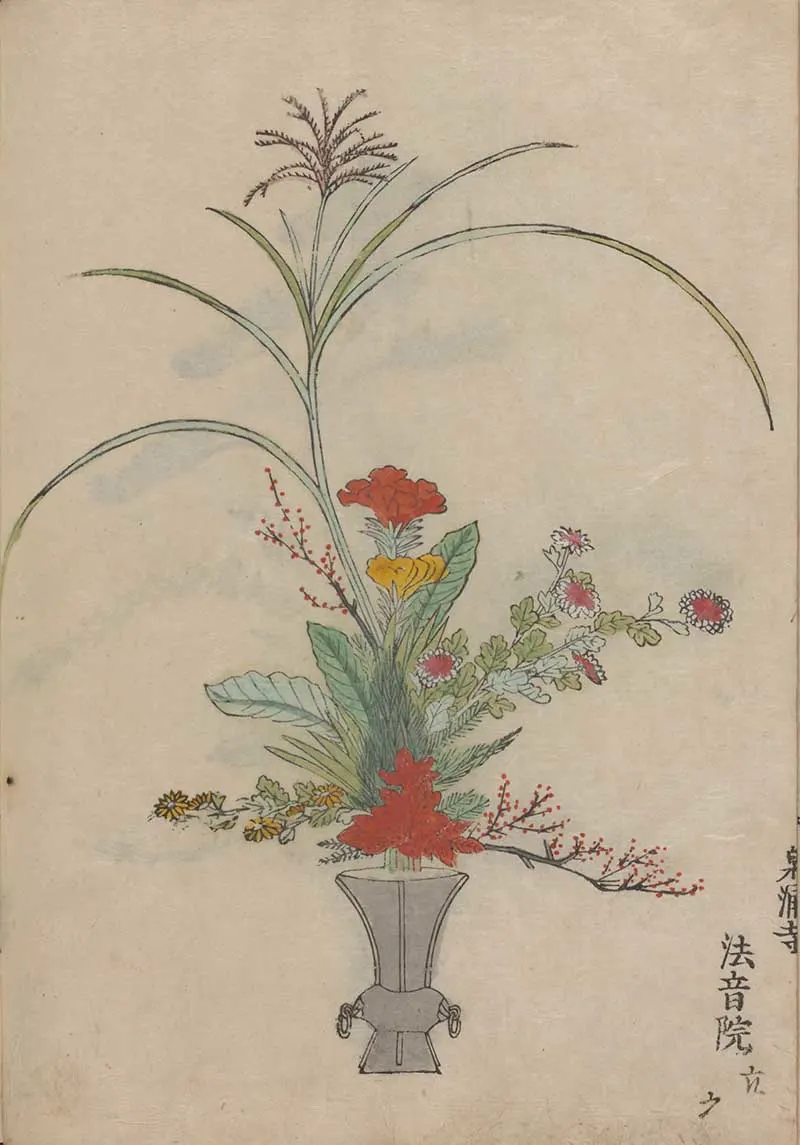
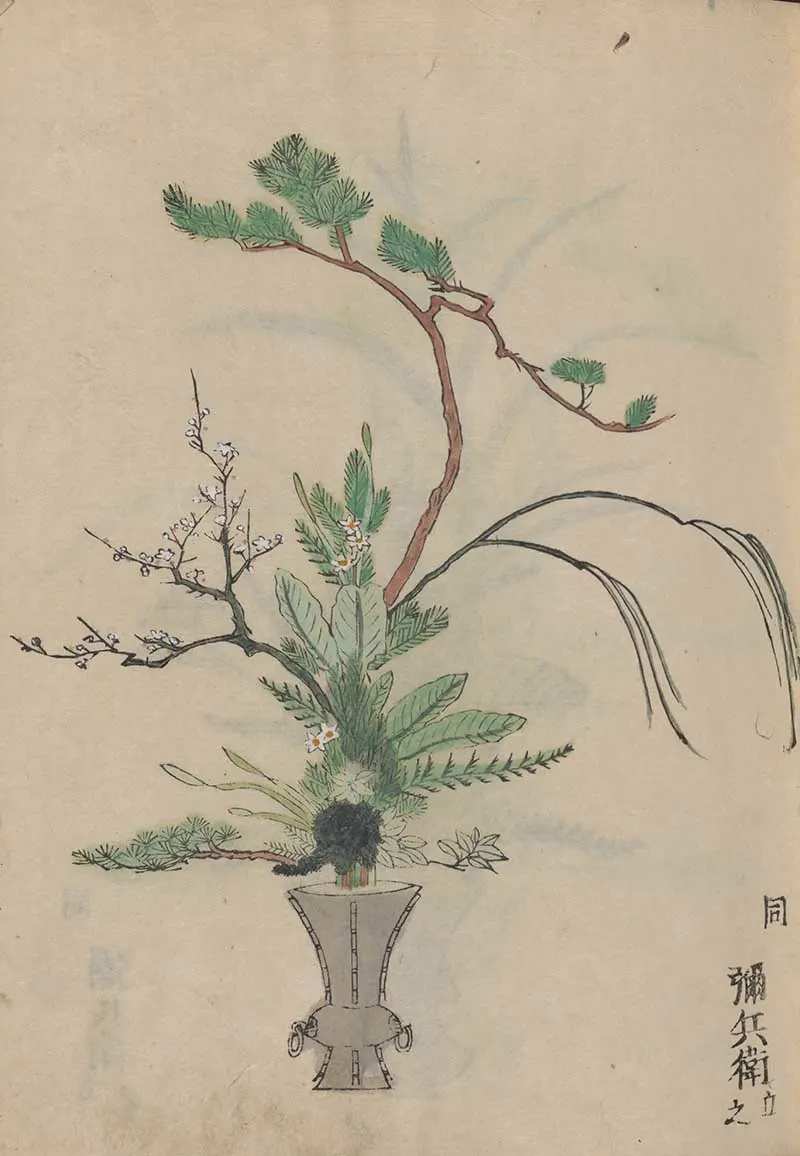
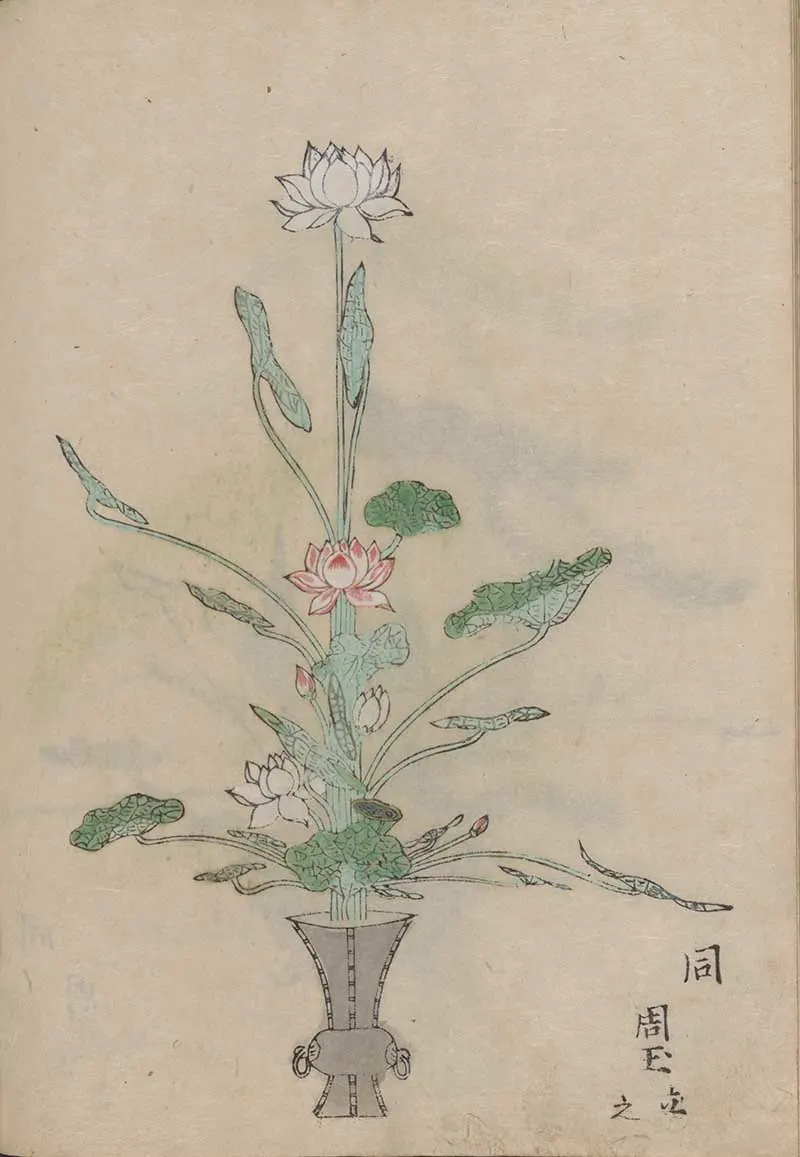
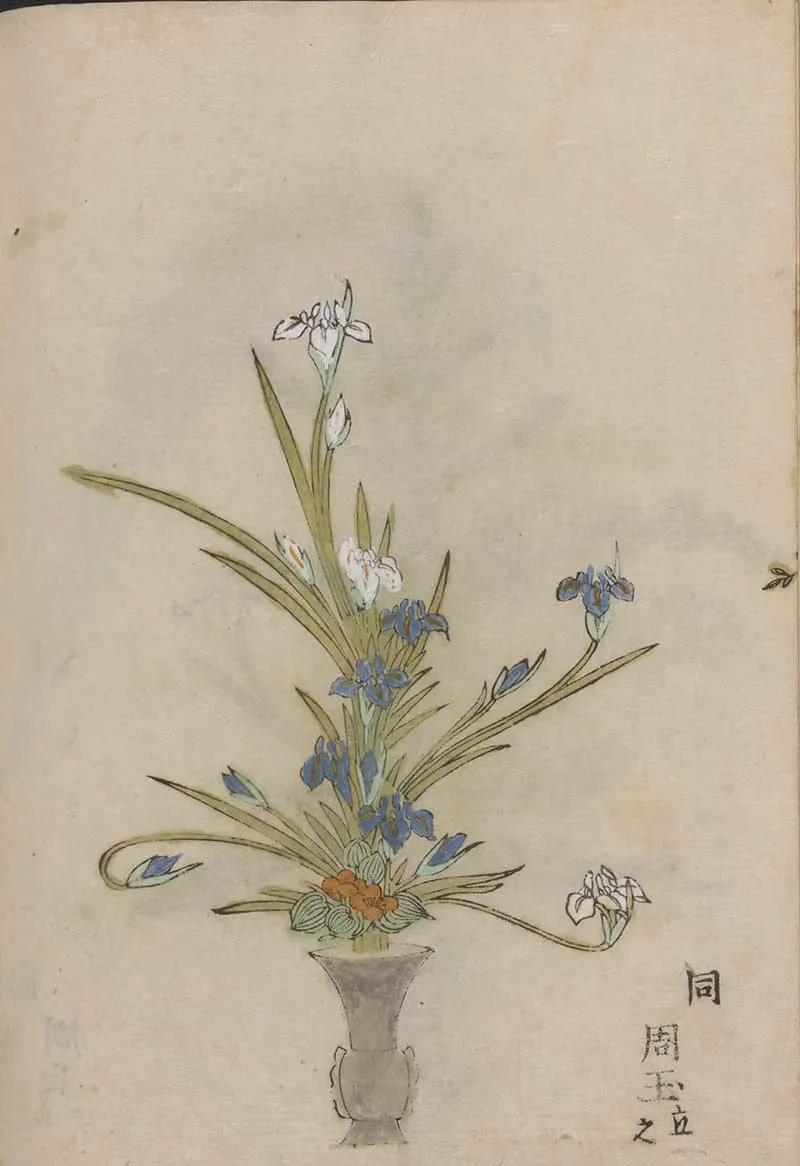
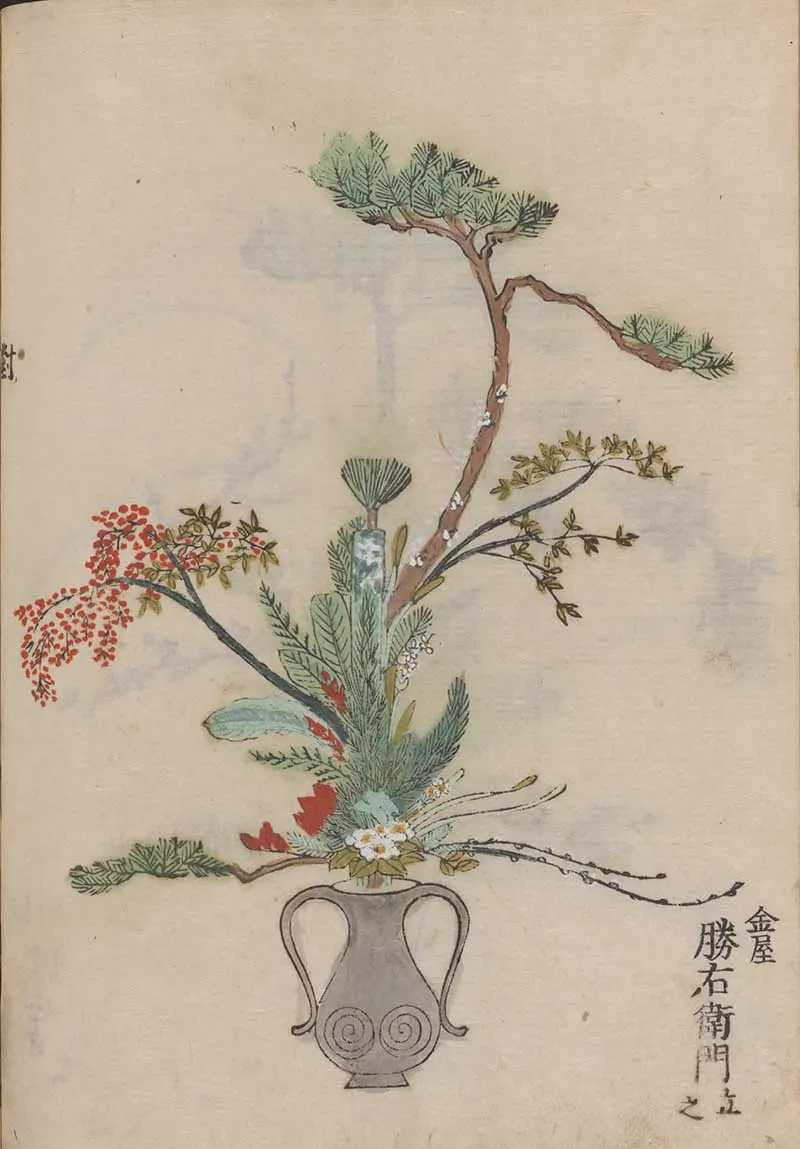
Josiah Conder Prints
“The Flowers of Japan and the Art of Floral Arrangement” is a captivating exploration of Japan’s rich floral traditions, penned by British architect Josiah Conder in the late 19th century. Beyond his architectural contributions, Conder immersed himself in Japanese culture, delving into the art of Ikebana—the disciplined practice of flower arrangement. His deep appreciation and study culminated in this comprehensive work, one of the earliest English-language texts on the subject.
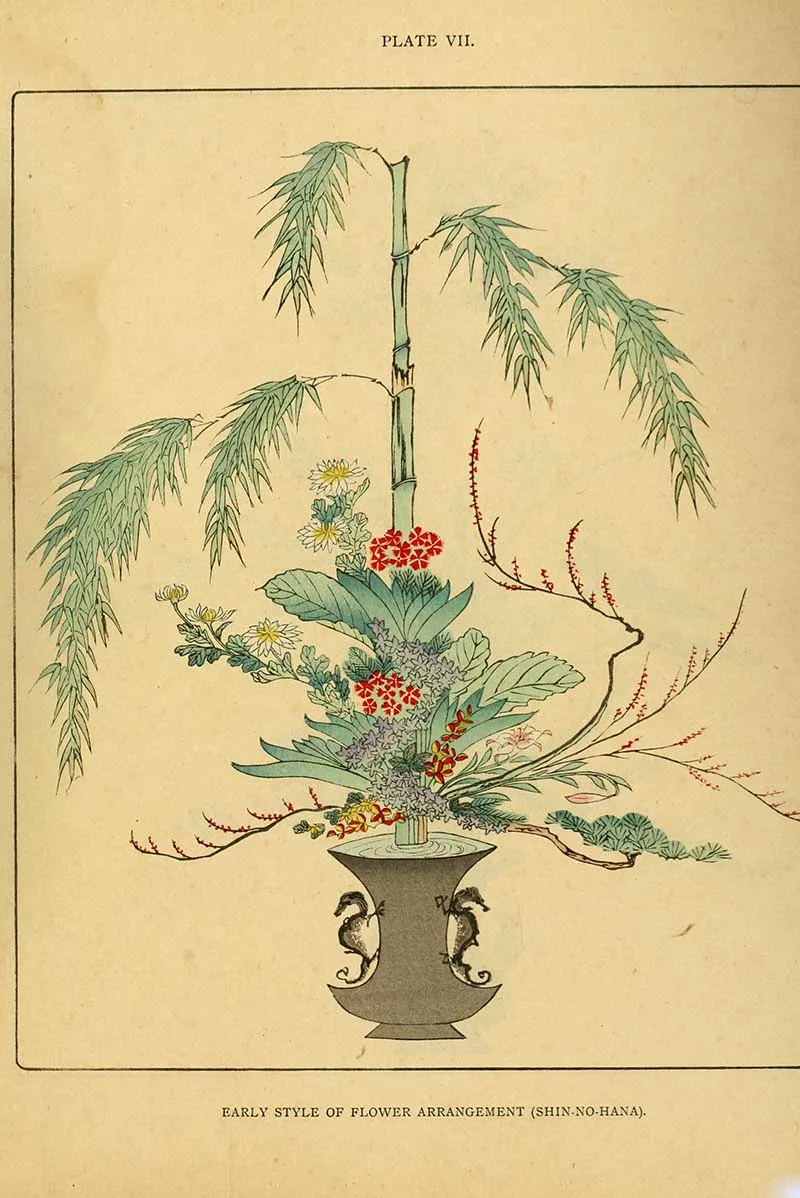
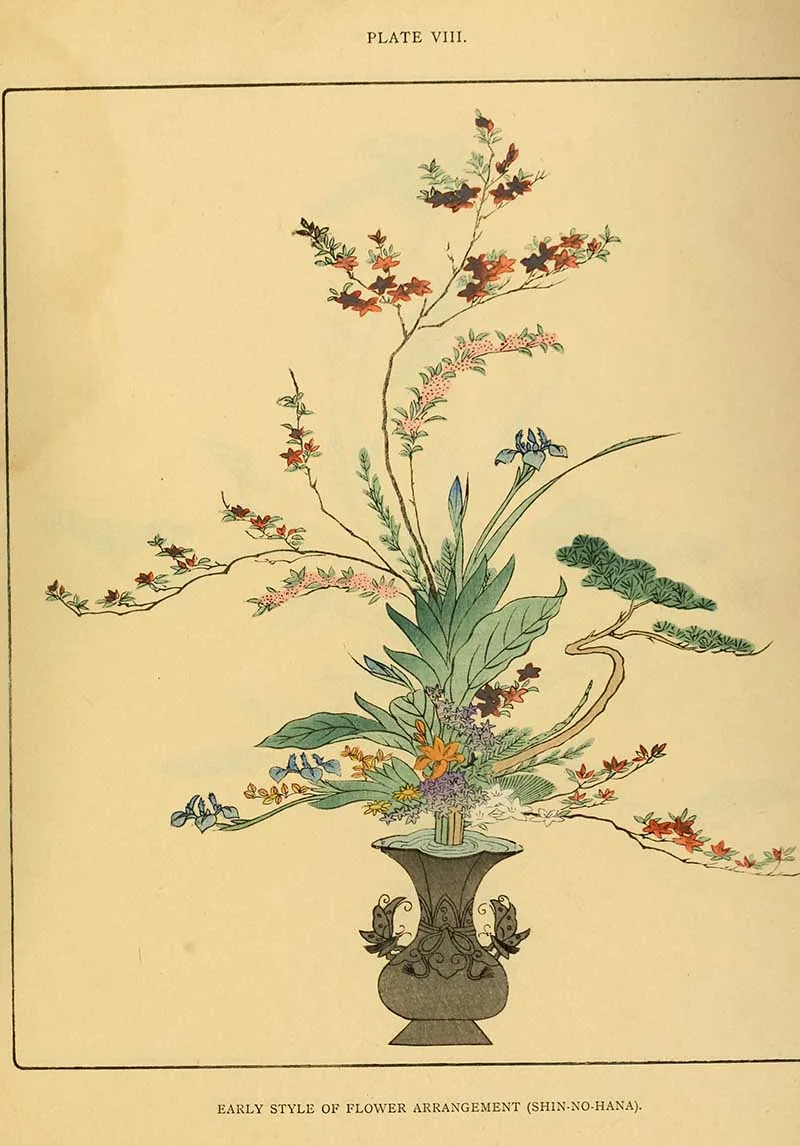
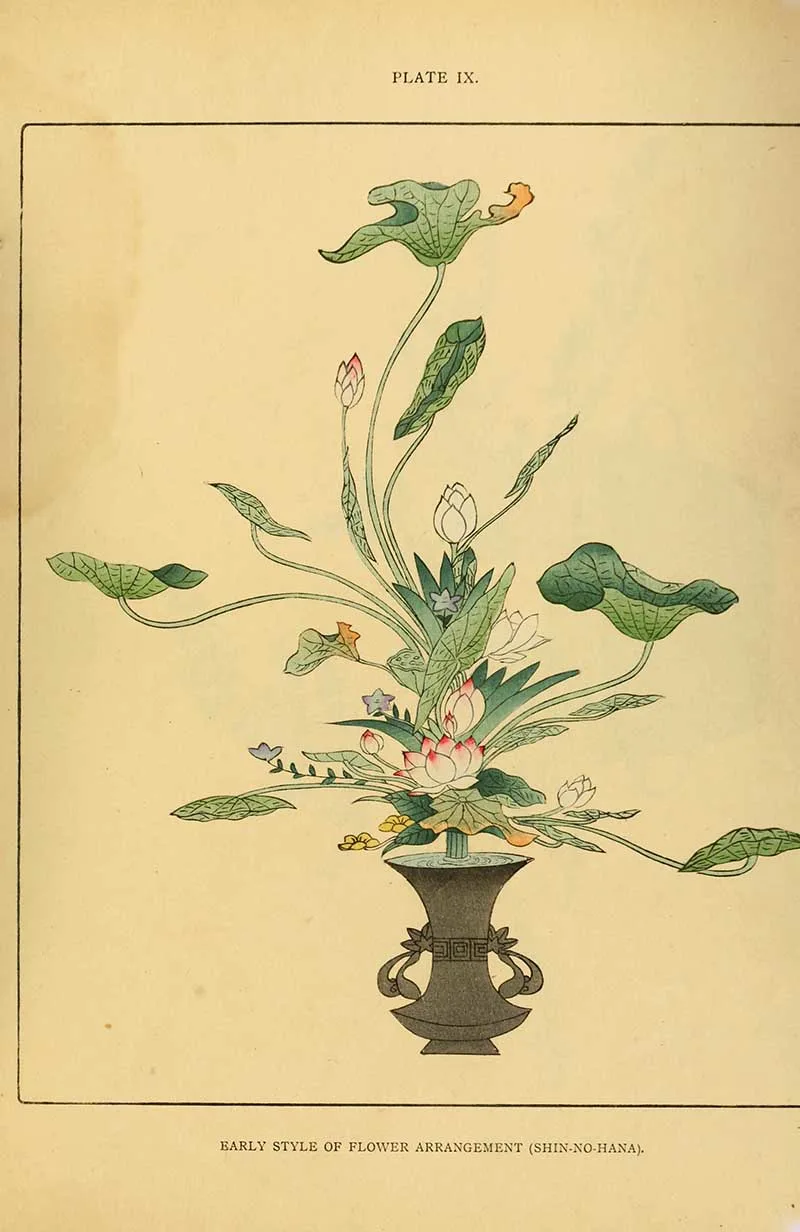
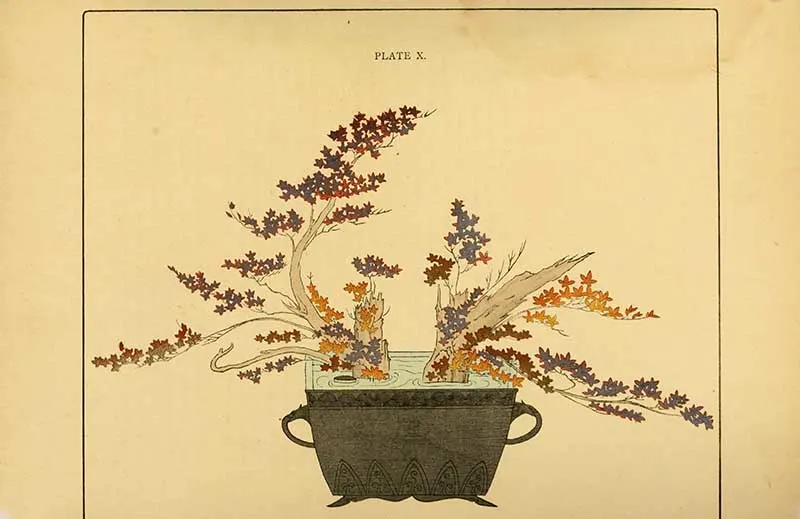
Ikebana Prints From Sōka Hyakki
“Sōka Hyakki”, published in 1820 by the 40th headmaster Ikenobō Senjō, is a seminal work in the art of Ikebana, explicitly focusing on the Shōka style. This collection comprises 100 meticulously selected drawings that exemplify the elegance and discipline of Shōka arrangements. The illustrations were crafted by renowned Shijō school painters Matsumura Keibun and Yokoyama Seiki, adding an artistic depth to the instructional content.
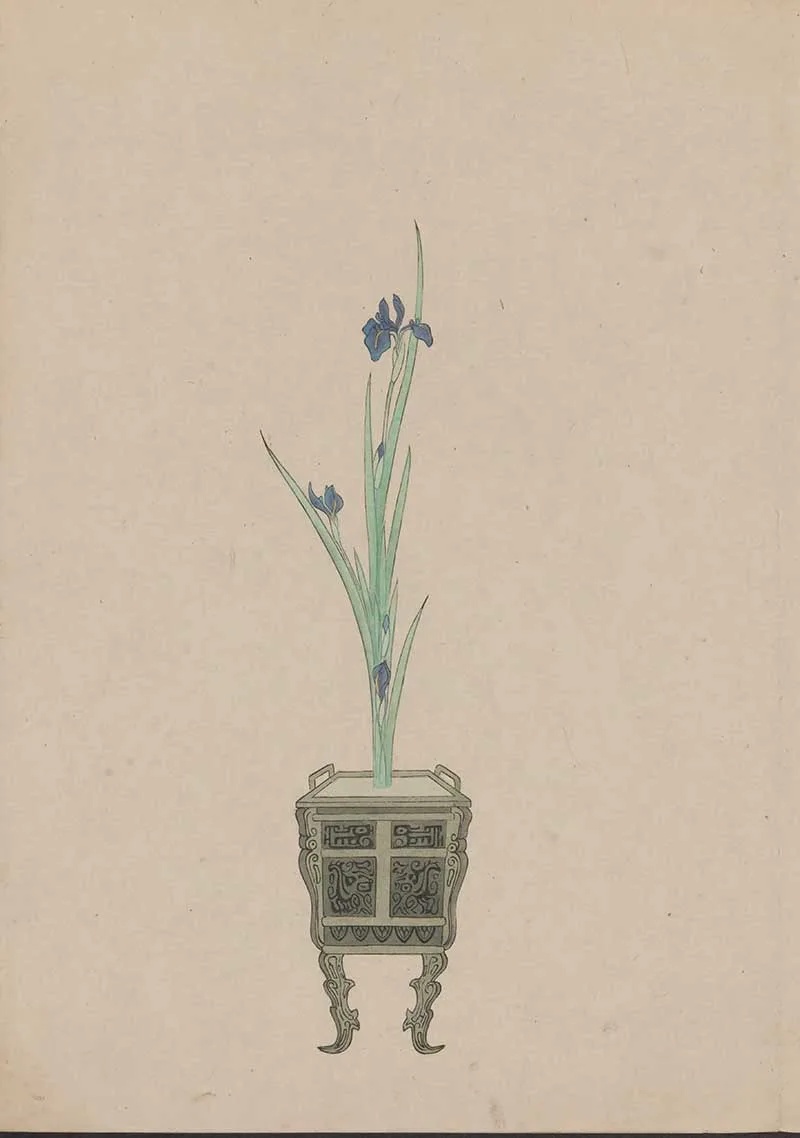
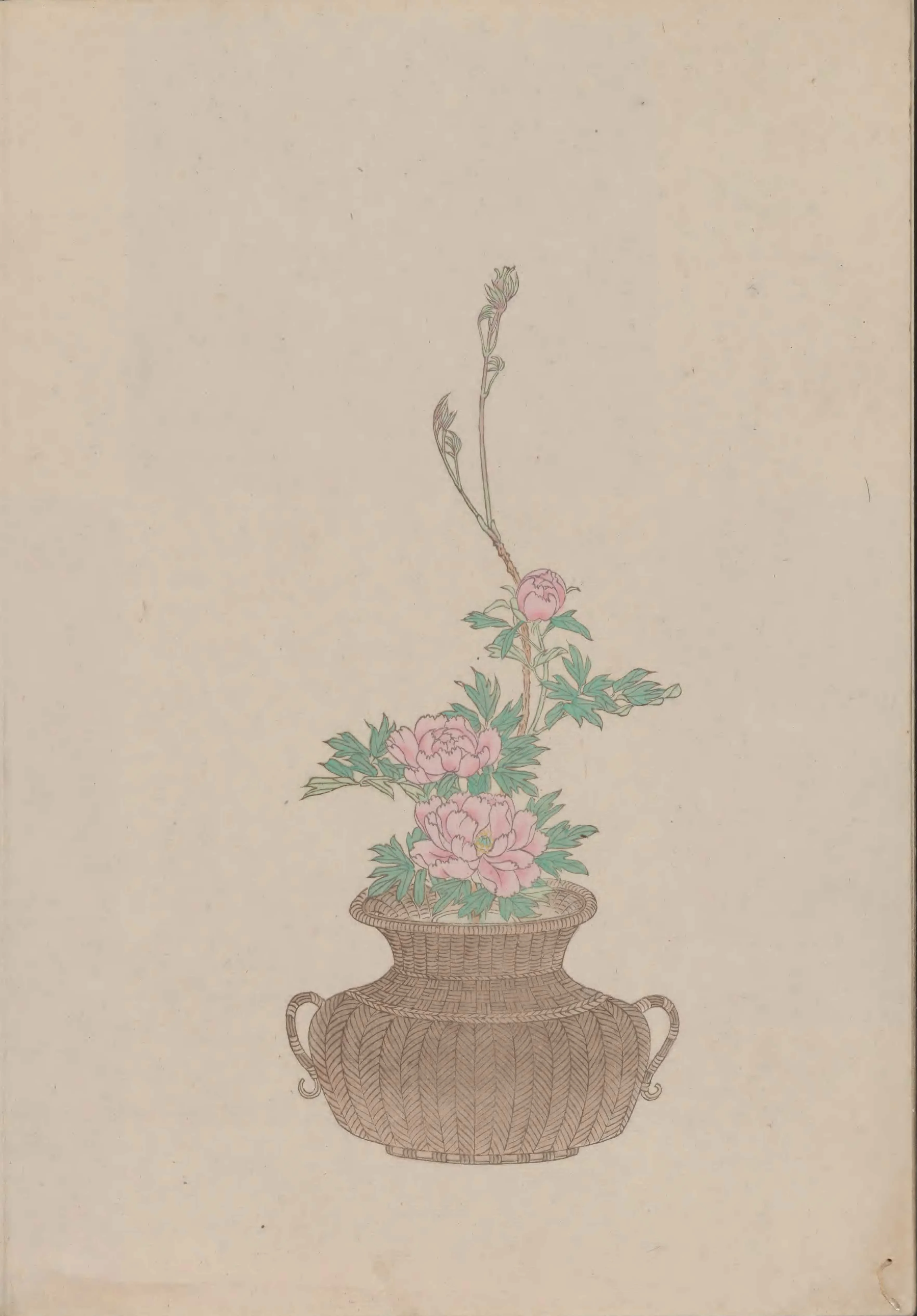
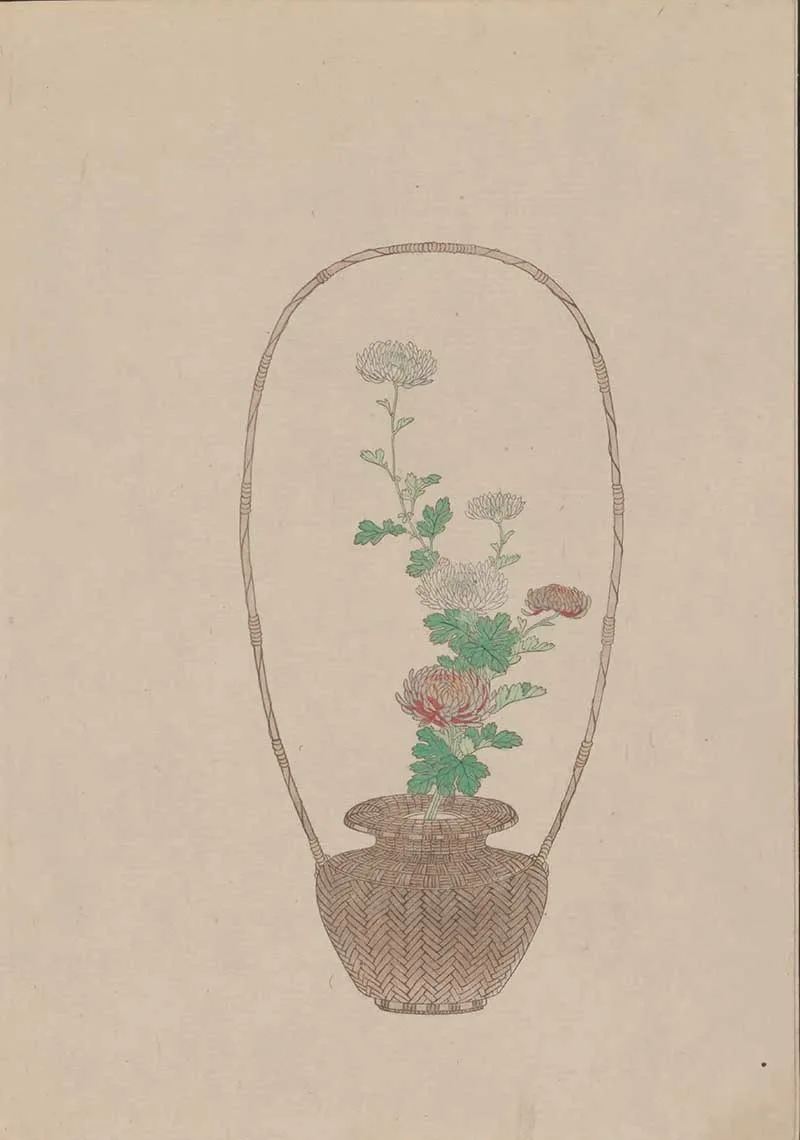
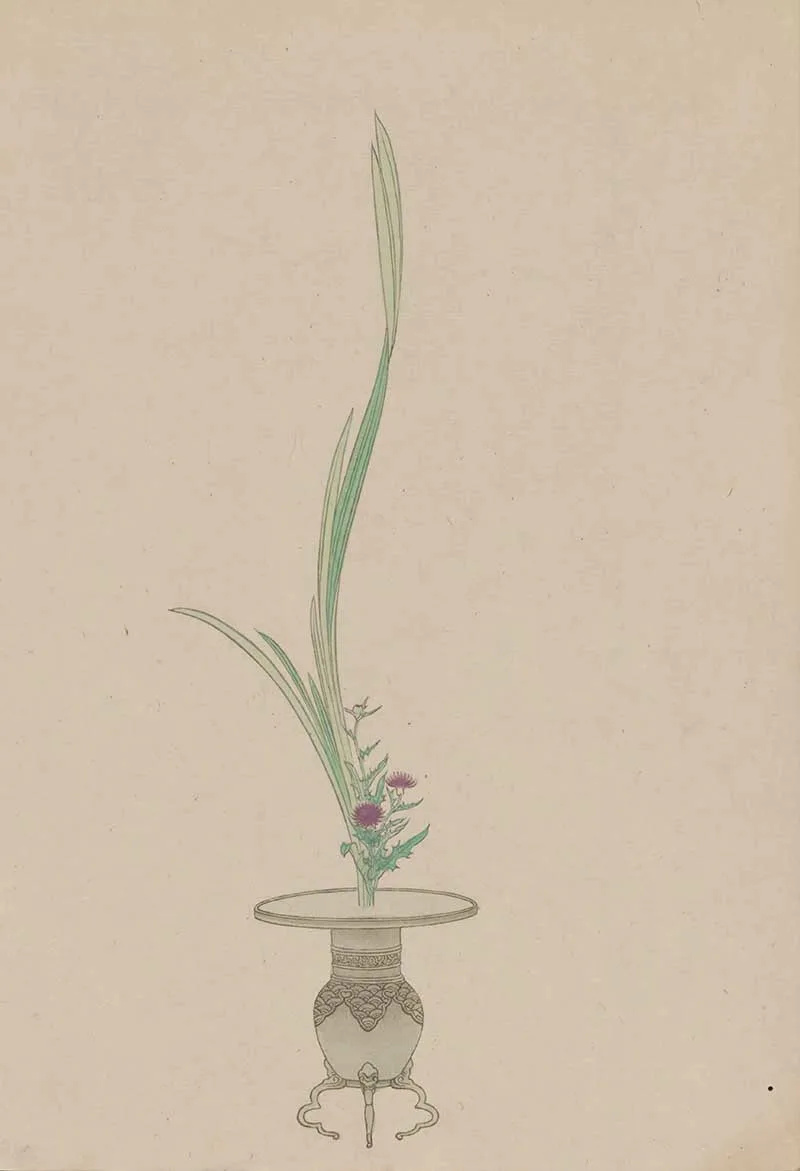
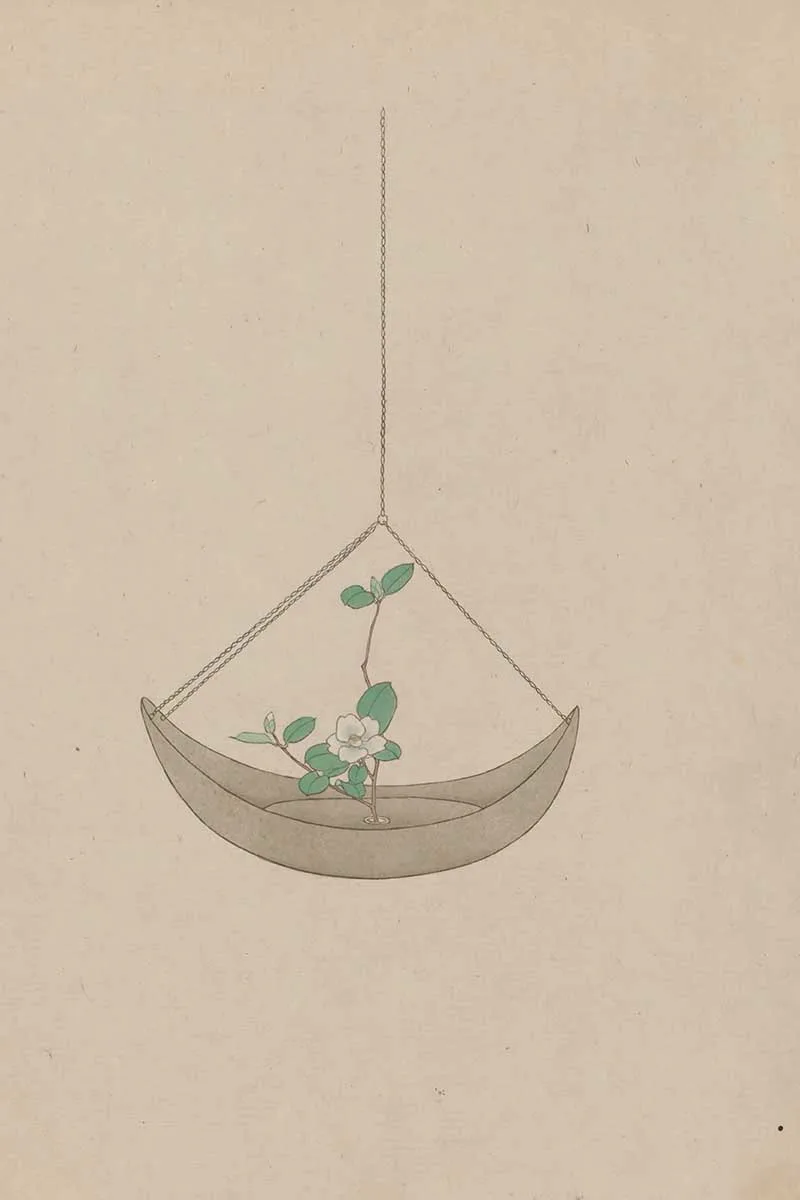
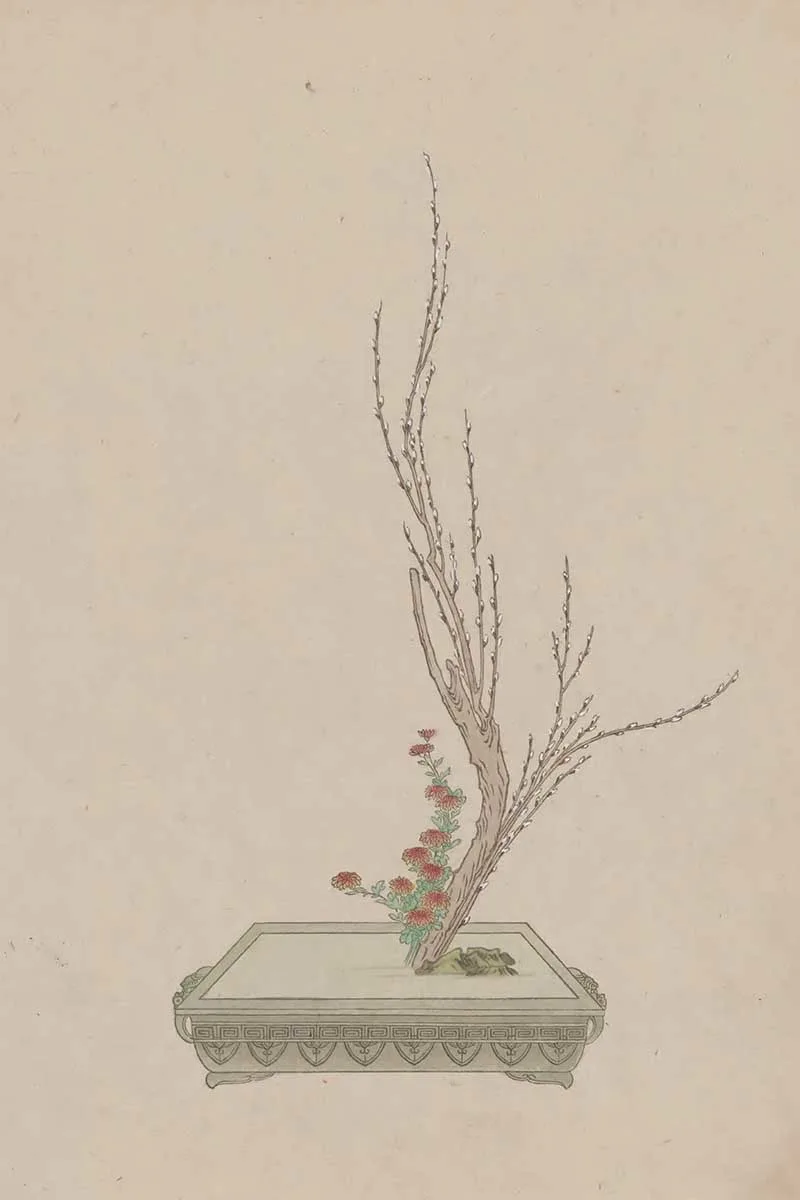
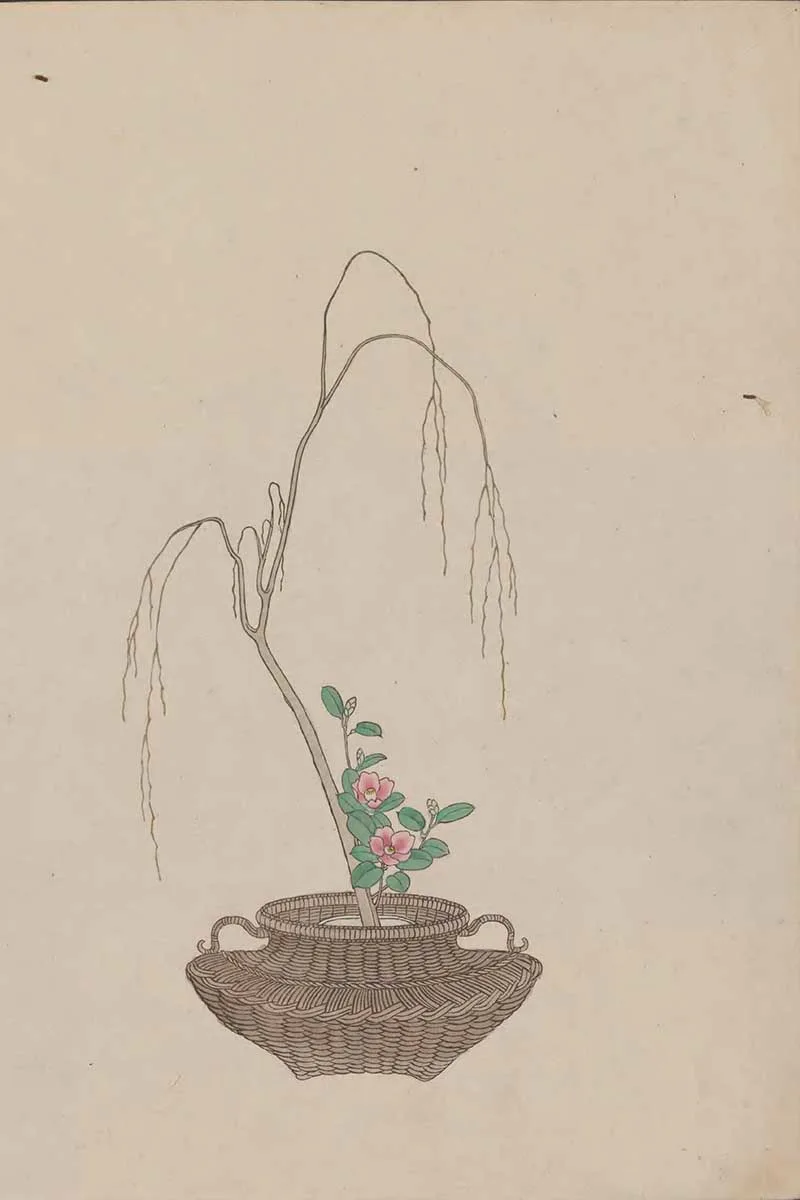
Drawings From Seizan Goryū Ikebana Senbei Zushiki: Shohen
Seizan Goryū Ikebana Senbei Zushiki: Shohen is a beautifully illustrated guide to Ikebana written by Mizutani Yūga. This book showcases the floral arrangement styles of the Seizan Goryū school, which emphasizes simplicity, natural beauty, and graceful composition. It is filled with detailed black-and-white Ikebana drawings and serves as an instructional manual and a visual celebration of traditional Japanese flower arranging.
This is one of only two colour ikebana drawings in the book.
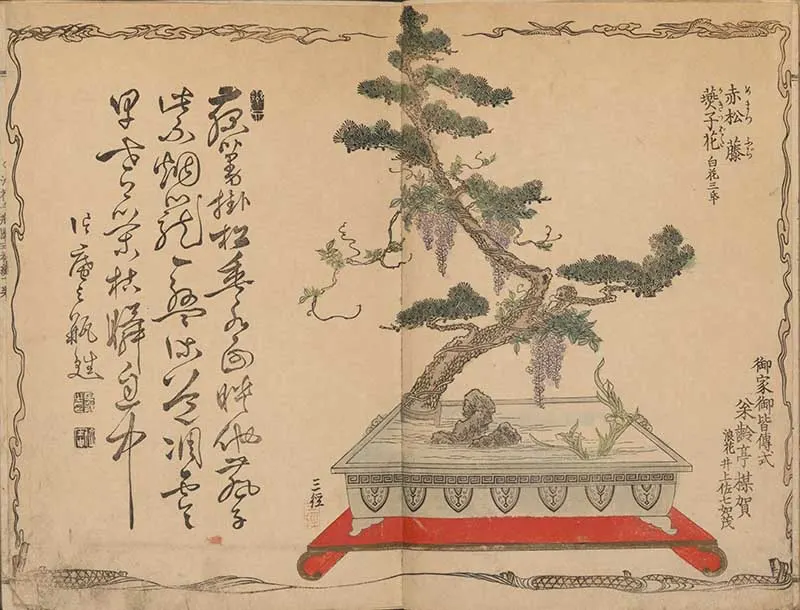
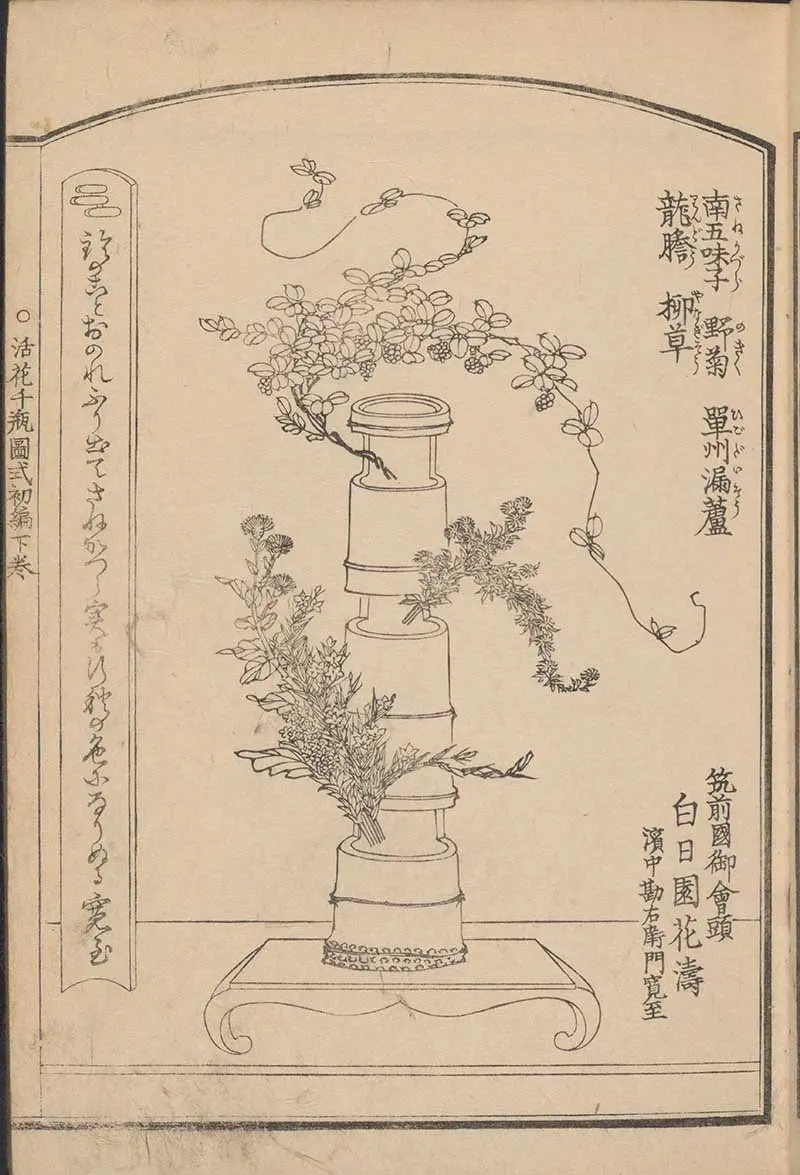
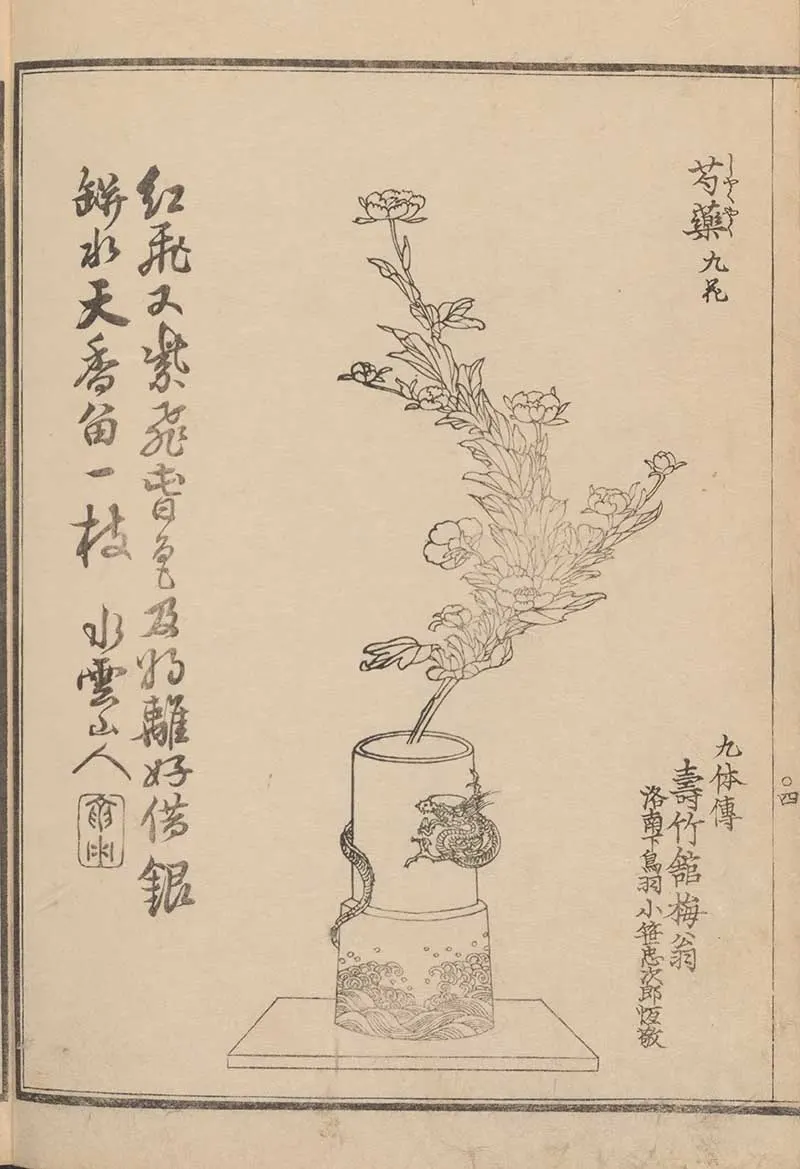
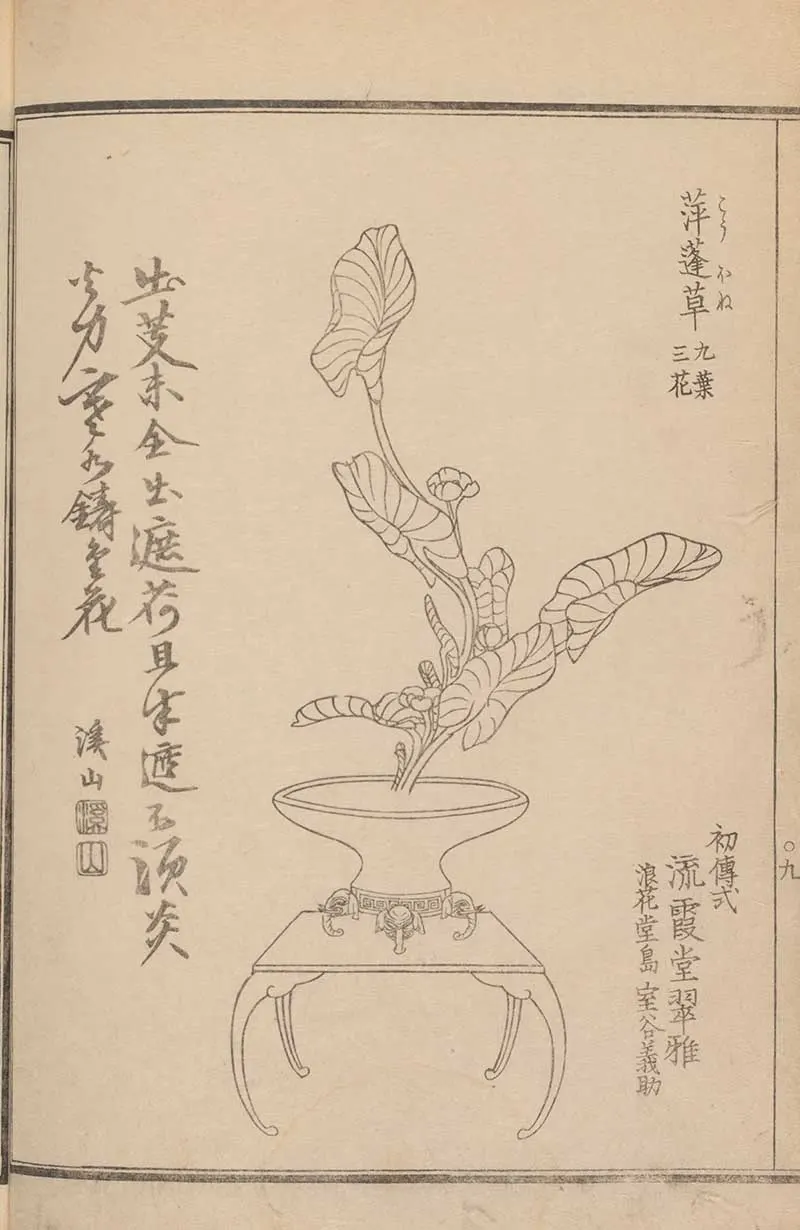
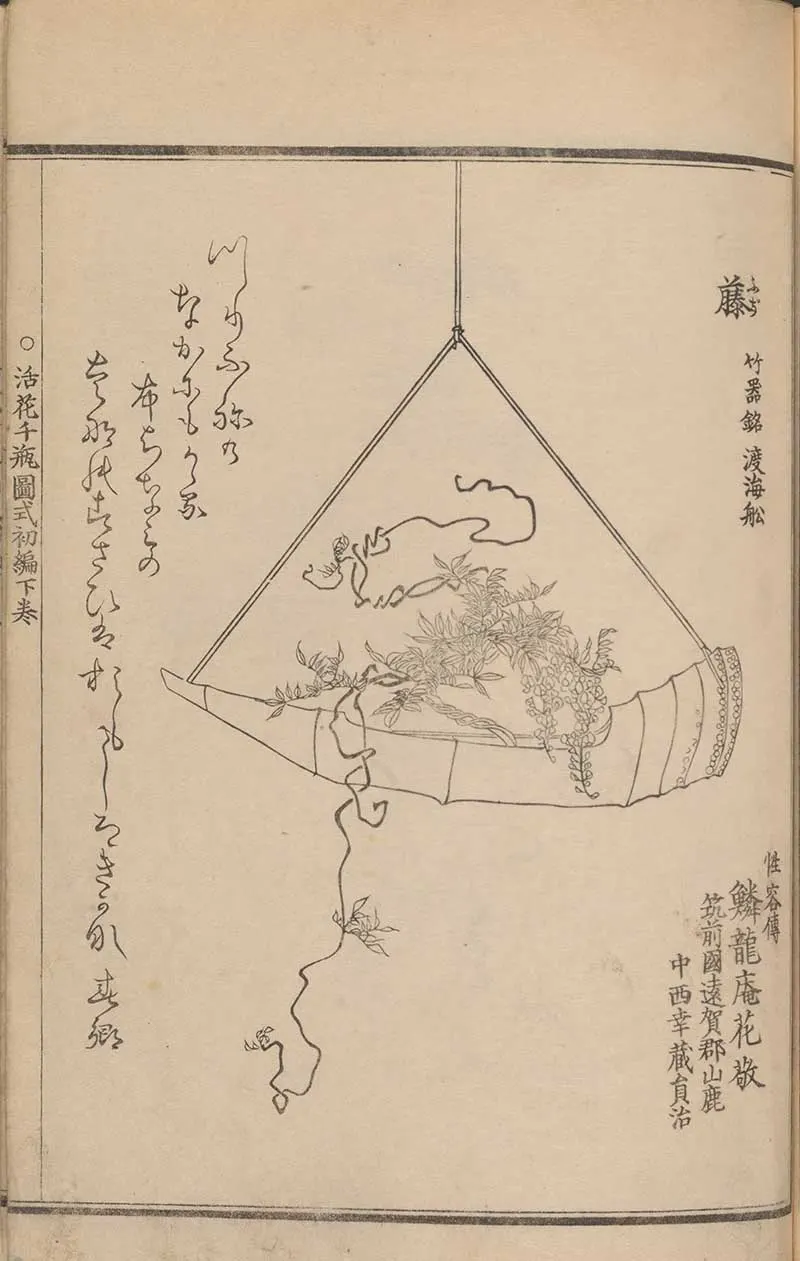
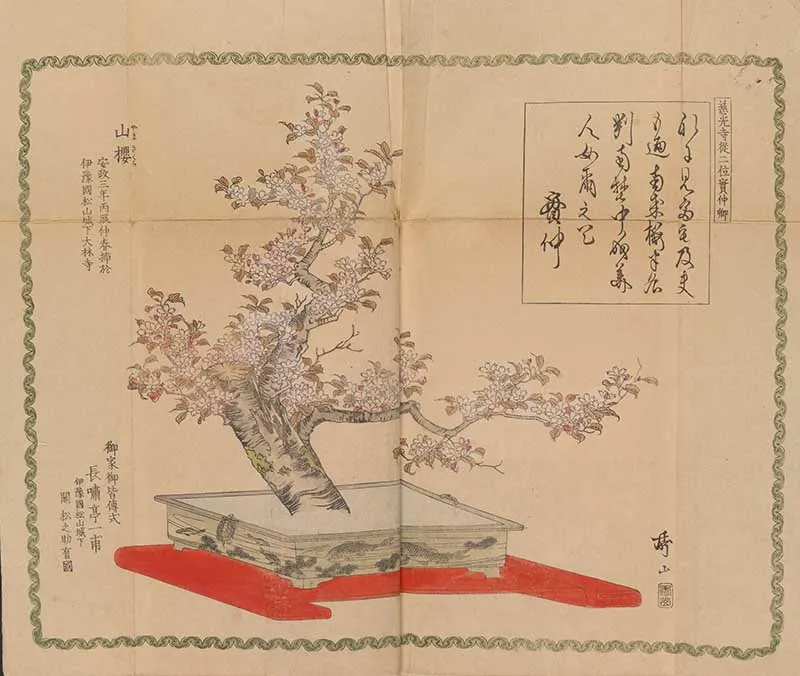
Why These Vintage Ikebana Prints Matter
These historical Ikebana prints offer a glimpse into the artistic sensibilities of past centuries. They showcase how arrangements were composed according to strict aesthetic rules yet remain timelessly beautiful. By downloading these vintage illustrations, you can explore how Ikebana was depicted in art and even draw inspiration for your floral creations.
If you love Japanese art and culture, make sure to check out my other collections, including:
- Japanese Art Patterns – Stunning textile and decorative motifs from historical Japanese design books. These include the very popular Shin-Bijutsukai art prints.
- Japanese Woodblock Prints – Classic Ukiyo-e prints capturing landscapes, folklore, and everyday life.
- Kono Bairei Bird and Flower Prints – Exquisite depictions of nature in traditional Japanese art.

Linda
Thursday 27th of February 2025
Thank you for sharing these lovely ikebana prints! Exactly what I needed for my journal
claire
Saturday 1st of March 2025
Thank you, glad they were useful!